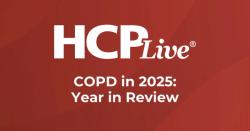
OR WAIT null SECS
Simvastatin, Rifaximin Combination Shows No Benefit for Decompensated Liver Cirrhosis
Findings from the LIVERHOPE trial suggest adding simvastatin and rifaximin to standard therapy does not reduce ACLF occurrence.
Adding simvastatin and rifaximin to standard therapy does not improve outcomes in patients with decompensated liver cirrhosis, according to findings from a recent study.1
The LIVERHOPE randomized clinical trial enrolled more than 200 patients with decompensated cirrhosis from 14 European hospitals and found 20 mg of simvastatin plus 1200 mg of rifaximin daily did not reduce the occurrence of acute-on-chronic liver failure (ACLF) or impact complications of cirrhosis, survival, or liver function tests.1
“ACLF is a complication of cirrhosis characterized by failure of the liver and/or extrahepatic organs that occurs as disease progresses, in the context of increased systemic inflammation, and is a major cause of death,” Pere Ginès, MD, PhD, a clinical hepatologist and chair of the liver unit of Hospital Clinic of Barcelona, and colleagues wrote.1 “Currently, there are no treatments to prevent ACLF.”
A clinical syndrome of sudden hepatic decompensation observed in patients with pre-existing chronic liver disease, recent trends in morbidity and mortality indicate patients with ACLF comprise 5% of all hospitalizations for cirrhosis.2
To assess whether simvastatin combined with rifaximin improves outcomes in patients with decompensated cirrhosis, investigators conducted a multicenter, parallel-group, placebo-controlled phase 3 trial among 237 patients ≥ 18 years of age with clinically diagnosed decompensated cirrhosis in 14 European hospitals between January 2019 and December 2022.1
Participants were randomly assigned in a 1:1 ratio to receive either oral simvastatin 20 mg once per day and rifaximin 400 mg 3 times per day (n = 117), or placebo (n = 120) for 12 months. Investigators noted randomization was stratified according to Child-Pugh class B or C.1
The primary endpoint was the incidence of severe complications of liver cirrhosis associated with organ failure meeting criteria for ACLF based on the European Association for the Study of Liver–Chronic Liver Failure (EASL-CLIF) criteria and classified into 3 grades of increasing severity. Secondary outcomes included transplant or death and a composite endpoint of complications of cirrhosis, including ascites, hepatic encephalopathy, variceal bleeding, acute kidney injury, and infection.1
Participants had follow-up visits at months 1, 3, 6, 9, and 12, at which time clinical data, standard laboratory test results, complications of cirrhosis, and adverse events were documented.1
Among the study cohort, 72% of participants were male and the mean age was 57 years. In total, 63% of participants completed the study protocol. Reasons for not completing the study protocol included the occurrence of adverse events (n = 40); patient decision (n = 18), liver transplant (n = 11); medical decision (n = 9); protocol violation (n = 6), and loss to follow-up (n = 3).1
Investigators noted a total of 38 patients presented with ≥ 1 episode of ACLF, including 21 patients in the simvastatin plus rifaximin group and 17 patients in the placebo group (hazard ratio [HR], 1.23; 95% CI, 0.65-2.34; P = .52). They also pointed out ACLF-related mortality was not significantly different between the groups (40% vs 54%, respectively; P = .56).1
In total, 22 patients (19%) died (n = 17) or received liver transplants (n = 5) in the simvastatin plus rifaximin group compared with 29 (25%) in the placebo group (17 died; 12 had transplants) (HR, 0.75; 95% CI, 0.43-1.32; P = .32).1
Additionally, 50 patients (43%) developed ≥ 1 complication of cirrhosis other than ACLF in the simvastatin plus rifaximin group compared with 55 (46%) patients in the placebo group (HR, 0.93; 95% CI, 0.63-1.36), with a similar incidence of the complications observed between the 2 groups (P = .70).1
Investigators pointed out that although the incidence of adverse events was similar in both groups (426 vs 419; P = .59), 3 patients in the treatment group (2.6%) developed self-limited rhabdomyolysis compared with no patients in the placebo group.1
“The LIVERHOPE trial did not find that addition of simvastatin plus rifaximin to standard therapy reduced the occurrence of ACLF in patients with decompensated cirrhosis at high risk of clinical complications. Furthermore, simvastatin plus rifaximin had no effect on other complications of cirrhosis, survival, or liver function tests,” investigators concluded.1 “Thus, our study does not support the combined use of simvastatin plus rifaximin to improve outcomes in patients with decompensated cirrhosis.”
References
- Pose E, Jiménez C, Zaccherini G, et al. Simvastatin and Rifaximin in Decompensated Cirrhosis A Randomized Clinical Trial. JAMA. doi:10.1001/jama.2024.27441
- Shah NJ, Mousa OY, Syed K, et al. Acute on Chronic Liver Failure. StatPearls. April 13, 2023. Accessed February 4, 2025. https://www.ncbi.nlm.nih.gov/books/NBK499902/


